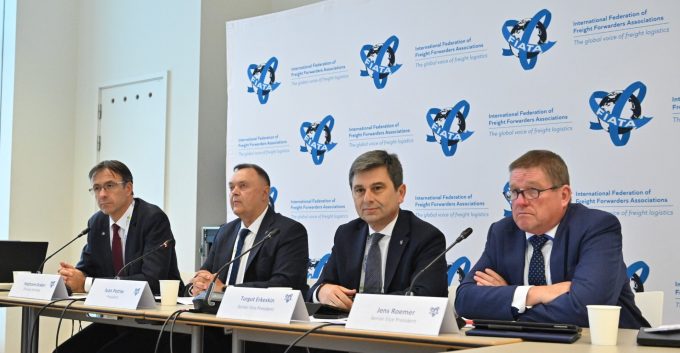SASI partners-up to establish air cargo training base in the UAE
SASI World is preparing to establish a permanent home for its training classes for the ...

‘Political unrest and Covid-19 have highlighted the need for every world corridor to be available and efficient’, said Fiata president elect Turgut Ereskin this week.
At the 2023 Fiata World Congress, Mr Erkeskin addressed the congress’s plan to improve the multimodal corridor. He told delegates: “Fiata is looking to work with multimodal corridor management systems, such as the newly established India-Middle East- Europe corridor, and welcomes creative ideas on corridor development”.
He stressed the importance of collaboration, adding: “The stability of regional ...
'Disastrous' DSV-Schenker merger would 'disrupt European haulage market'
New senior management for DSV as it readies for DB Schenker takeover
Volumes set to 'fall off a cliff' as US firms hit the brakes on sourcing and bookings
Asian exporters scramble for ships and boxes to beat 90-day tariff pause
Amazon pushes into LTL for small package fulfilment and UPS does a u-turn
Temporary tariff relief brings on early transpacific peak season
Pre-tariff rush of goods from US to China sees air rates soar, but not for long
Forwarders 'allowing the fox into the chicken run' by supporting 'hungry' carriers

Comment on this article